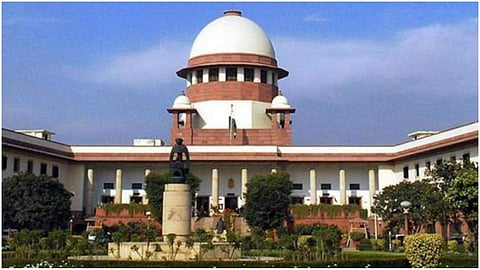

The Director of School Education, Chennai's Special Leave Application challenging the Madras High Court's verdict on the need for teachers of minority institutions to qualify the Teachers Eligibility Test (TET) has been taken up for consideration by the Supreme Court.
The Madras High Court heard the case of a teacher applying to a minority school, who had been told by the Director of School Education that her application was not valid since she hadn't qualified the TET in 2019. When the teacher filed a petition in the High Court, Justice TS Sivagnanam ruled that the government cannot insist on teachers from minority institutions qualifying via the eligibility test.
The court referred to previous verdicts on the matter by division benches and came to the conclusion that it wouldn't be fair to insist that teachers already in service for many years also qualify via the TET, which is valid only for five years before applying for a new job. Additionally, the court ruled that the government cannot demand that TET qualification be necessary to be appointed to minority institutions. However, the court had taken note of the government's reasoning behind the TET qualification, and said that refresher courses can be implemented in order to uphold the quality of teachers.
The Director of School Education then filed the SLP in the Apex Court, which has agreed to hear the matter. The Court said it will make a decision on two main questions. These include whether or not the government can impose TET on teachers applying to non-aided minority institutions, and whether such an imposition would infringe upon the rights of the minority institutions as granted by the Constitution.
The notice was issued on February 14 by a Supreme Court bench consisting of Justices MR Shah and BV Nagarathna. The petition will be heard on March 22, 2022.
